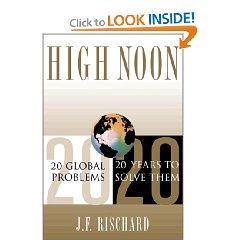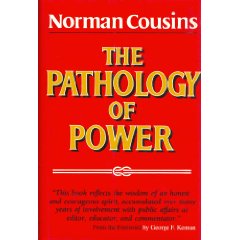It is quite significant, in my view, that today as I write this Al Franken, Lies and the Lying Liars Who Tell Them: A Fair and Balanced Look at the Right is #2 at Amazon, and Sheldon Rapton and John Stauber, Weapons of Mass Deception: The Uses of Propaganda in Bush's War on Iraqis #114 at Amazon. Not only are the people awakening to the truth, which is that they have been had through a combination of inattention and manipulation, but these two books and several others in this genre are validating what Chomsky was telling us all in the past 25 years.
The ability to set the agenda and determine what is talked about and how it is talked about is at the root of hidden power in the pseudo-democratic society. Chomsky was decades ahead of his time in studying both the power of language and the power of controlling the media message. Today, as we recall that so-called mainstream news media *refused* fully-funded anti-war advertisements that challenged the White House lies (62 of which have been documented with full sourcing in various blogs, notably Stephen Perry's Bush at War blog), we must come to grips with the fact that America is at risk.
Thomas Jefferson said “A Nation's best defense is an educated citizenry” and Supreme Court Justice Branstein said “The greatest threat to liberty is an inert public.” Today we lack the first and have the second, but as Amazon rankings show, the people, they are awakening. It is through reading, and following the links, and informed discussion, that the people can come together, using new tools for peer-to-peer information sharing and MeetUp's, and take back the power.
Chomsky had it right. It took 25 years for all of us to realize he had it right. I rise in praise of this great man.
Other links that validate his ethics and intellect:
Vice: Dick Cheney and the Hijacking of the American Presidency
Running on Empty: How the Democratic and Republican Parties Are Bankrupting Our Future and What Americans Can Do About It
The Battle for the Soul of Capitalism: How the Financial System Underminded Social Ideals, Damaged Trust in the Markets, Robbed Investors of Trillions – and What to Do About It
Independents Day: Awakening the American Spirit
Day of Reckoning: How Hubris, Ideology, and Greed Are Tearing America Apart
Al On America











